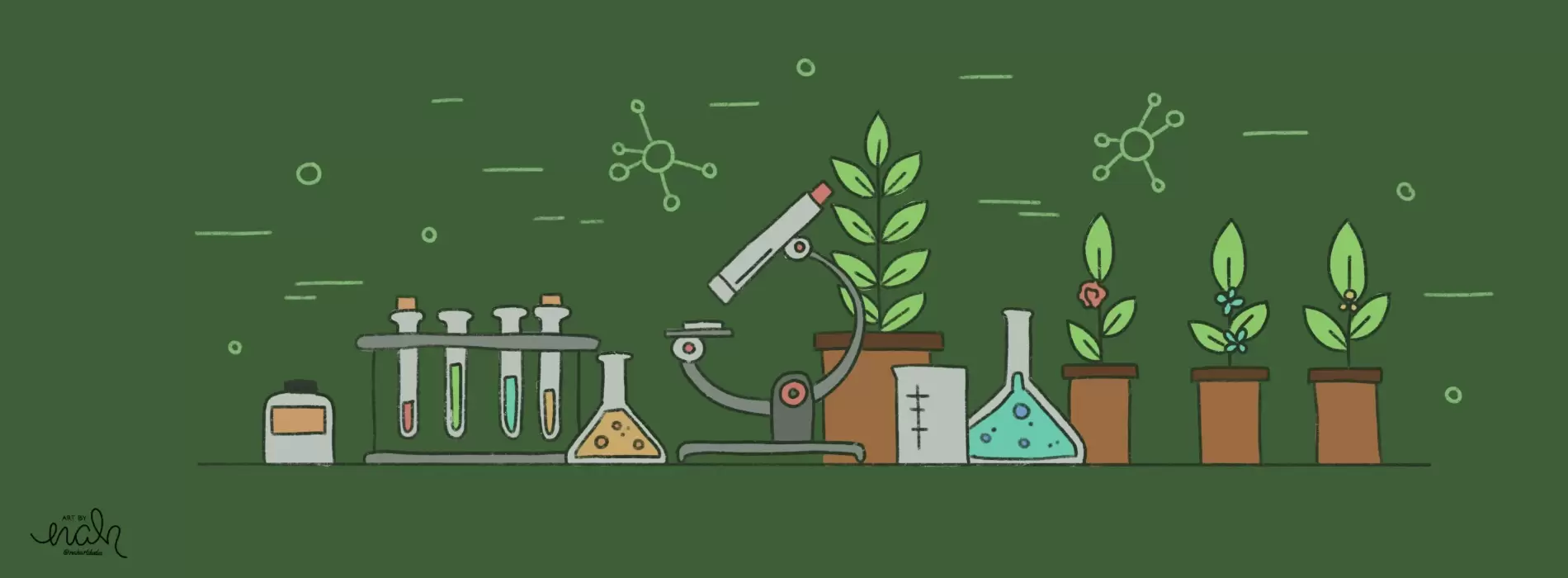This blog post about the bio IA is written by Asha, a prolific Lanterna tutor whom you might recognise from an earlier post, where I interviewed her on how she got 45 points! She is currently studying biochemistry at UCL.
I remember thinking that completing and submitting my Internal Assessments and Extended Essay would be the most stressful thing in my life. Oh, how wrong I was. Nonetheless, it’s still an extremely difficult period for most IB students, especially when it seems you have a million different deadlines due all at the same time. One of the most challenging subjects for me to write was my biology IA, partly because I had no idea how to go about it nor any clue of how I could fill up 12 pages of words with my research. So, to help you out, here are some tips on getting started with your Biology IA and a few topic ideas. Need more tips on how to nail your science IA analysis? Go ahead and read our IA tips guide.
Tip #1: Write down your lab protocol beforehand
Many students tend to walk into the laboratory expecting to wrap up their experiments within the day or even a couple of hours, only to realise that perhaps the lab doesn’t have all the materials they require. Or worse, they have no idea what the exact method they need to follow is. So the first tip from me would be: plan your bio IA thoroughly beforehand! This includes figuring out what materials you need and writing down your lab protocol so you don’t hit a wall during your experiment.
Tip #2: Adjust your protocol during your bio IA experiment
So this may seem contrary to my first tip, but hear me out on this one. You’ll rarely be able to follow your protocol to the point (unless you’re very lucky, that is). Write down what you’re doing as you go along in case you end up rearranging your steps or subbing one material out for another. You’ll thank yourself later.
Tip #3: Don’t make the bio IA overly complex
I know it’s tempting to create a super-duper complex world problem-solving IA (or at least it was for me). Trust me, though, that’s not the path you want to go down. Your bio IA should be relatively simple or easy to follow. You’ll score more marks writing a detailed report on a simple experiment than writing something about a complex experiment that doesn’t make much sense beyond the surface level.
Tip #4: Don’t be afraid to make mistakes
Your experiment didn’t work exactly how you wanted it to? Don’t stress out about it! Your IA is not meant to be a perfect lab report. It’s almost impossible to obtain perfect results on every trial. If something didn’t do what it was supposed to, how about you try to explain why instead of restarting your whole experiment? If anything, it gives you material to put into your evaluation 🙂
Bonus: 10 Bio IA Ideas
Anyways, that’s it for my tips. Now onto some biology IA topic ideas:
- Measuring the effect of x (any variable – hand sanitiser, toothpaste, temperature, light, alternative medicine, sugar) on bacterial growth
- Measuring the effect of x on seed germination
- Analysing the effect of temperature on food decay
- Measuring the effect of x on yeast growth
- Modelling the spread of a disease/population growth to based on different factors
- The effect of limiting factors on photosynthesis
- The effect of age/gender/education on reaction speed
- The difference in CO2 levels in inhaled/exhaled air
- The effect of pollution on bacterial growth
- The effect of surface area: volume ratio on the rate of diffusion
And that was it from Asha this time around! A huge thank you to her for lending us her expertise. These tips will hopefully help you get started right! If you want someone like Asha to give you expert support for your IA, you can get that through our tuition right here! Remember, a tutor cannot write your IA for you or come up with the ground-breaking idea on your behalf, but they can give you tips and support along the way.


